Hampi is located in the Northern part of Karnataka and it can be easily accessed by rail, road and by flight. The nearest town is Ballari which is located 64 kilometers from Hampi and it has an airport. If you are coming by train then you have to get down at Hospet Junction Railway station which is 10 kilometers away from Hampi. You can also hire private cars from big cities like Hyderabad, Bangaluru and Mysuru or Mysore. From Hyderabad it takes a little more than six and a half hours by road and from Bangalore it will take 6 hours and five minutes if you take National Highway four and seven hours twenty-two minutes if you travel via National Highway 13. As you approach Hampi you will notice huge boulders on the two sides of the street and rugged hills that make up the topography of this place. It is this defensible hilly region that formed a part of the great Vijayanagara Kingdom of the 14th century. Though most of temples and statues have been destroyed by a joint invasion of the Islamic rulers of Ahmednagar, Golconda, Bijapur and Bidar, the city still retains the charm of its glorious past. Hampi is a great place to visit if you love history and archaeology.
Hampi has been declared as a UNESCO World Heritage site. The word Hampi is derived from the word ‘Pampa’ which was the earlier name of Tungabhadra river. The word ‘Pampa’ was derived from the Kannada word ‘Hampe’, which became anglicized as ‘Hampi’. The biggest attraction of Hampi is the Virupaksha temple (Lord Virupaksha is the reigning deity of the Vijaynagara rulers). Thus Hampi is also reffered to as Vijayanagara and Virupakshapura. Hampi is considered to be the largest open monument and lost city of Asia that’s worth discovering.
Here are 10 things to see at Hampi , the core area of the Vijaynagar kingdom and a city of beautiful ruins-
- Virupaksha Temple:
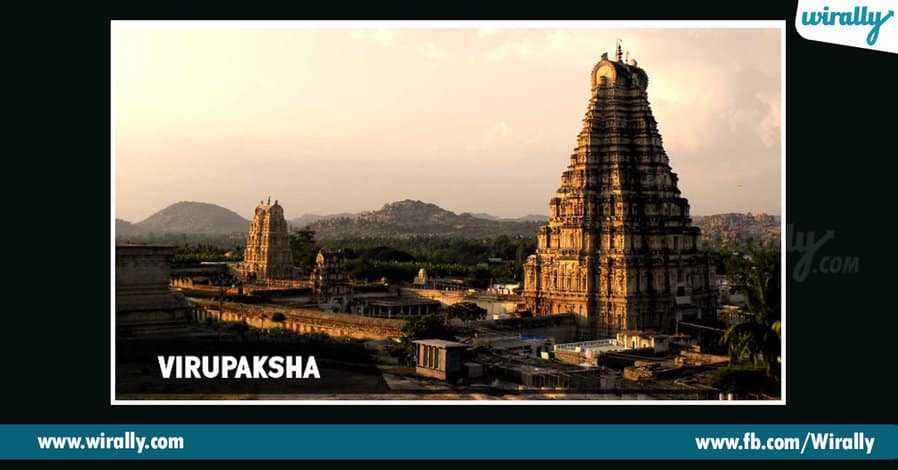
As you enter the courtyard through this gopura or towered entrance then you can find a pillared hall on the far left and Kalyanamantapa on the far right. Then there is a kitchen complex with a water channel fitted on the floor is an engineering marvel of that period. The triple headed Nandi (bull) statue will catch you eye as you enter the courtyard.
The other most striking feature of the temple complex is the Ranga mandapa added to the temple complex in 1510 AD by the famous king Krishnadeva Raya. Further west, beyond a smaller inner hall in the sanctum sanctorum of Lord Virupaksha is the idol in form of a linga or phallus image. Surrounding the main shrine are the shrines of the Lord Virupaksha’s consort and other deities. You must notice the intricately carved pillars and murals of this temple.
- Lakshmi Narasimha Statue:
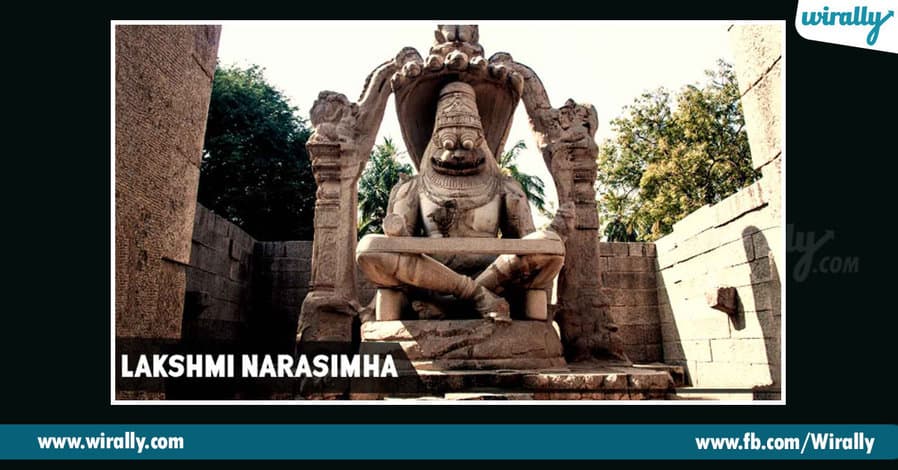
The orginal statue had a small figure of Goddess Lakshmi sitting on the lap. But during the attack the statue was vandalized and one the limbs of Narasimha was broken as a result. The damaged Lakshmi statue is at the archaeological museum at Kamalapura.
The most striking feature of the 6.7 meter high statue is the bulging or protruding eyes of Lord Narasimha, thus this statue is also reffered to as ‘Ugra Narasimha’ or angry Narasimha. The Narasimha statue has a well chiseled broad chest and mane. It is adorned with a headgear. The sculpture portrays Lord Narasimha is seated in a cross legged position on the coils of a Adishesha, the king of all snakes. The hoods of the snake is like a canopy on the head of Lord Narasimha. The lion mask set on the hoods of Adisesha and the makrana torana or arch on which the sculpture is set makes it a masterpiece. The sculpture is also interesting because it was hewn from a single boulder of granite. It is located on the south side of the Hemakuta Hills enclosure.
- Hemakuta Hill:
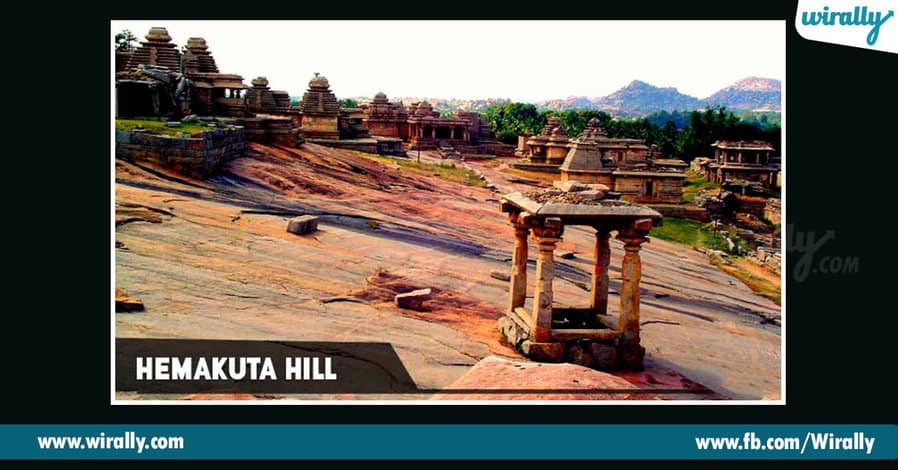
Most of the temples in the area are dedicated to Lord Shiva. There is a Moola Virupaksha Temple with a pool in front and it is considered to be the original Virupaksha temple. The second access point has a twin archway through which you can visit the Sasivekalu Ganesha and Kadalekalu Ganesha shrines.
Make the best use of your camera from the Hemakuta hills.
- Hampi Bazar:

Try to close your eyes and imagine what a thriving market place it was! There is a Nandi or Bull statue at the east end of the street. There is an open platform which is a stage for the annual Hampi festival. In this bazar is located the oldest nursery school for the village children. If you are staying nearby Hampi it is a great idea to take a morning walk to watch the city wake up.
- Matanga Hills:
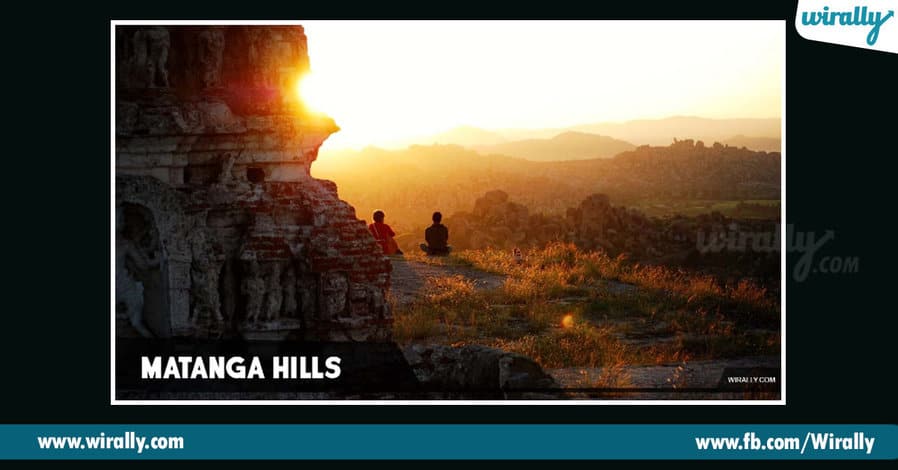
On the topmost point of the hill the Veerabhadra temple is located. The steep ramp is towards the west and it is a stepped path. The stone steps are as old as the Vijaynagar kingom!
- Dasara Dibba or Mahanavami Dibba:
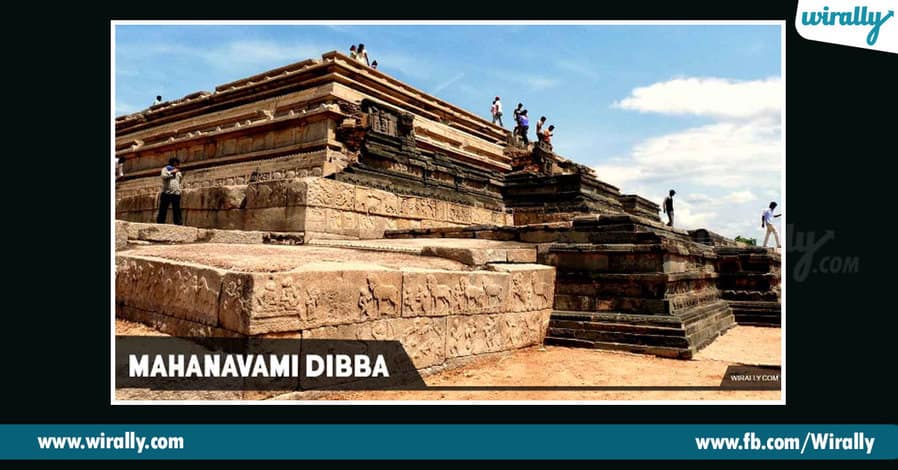
- Vijaya Vithala Temple:
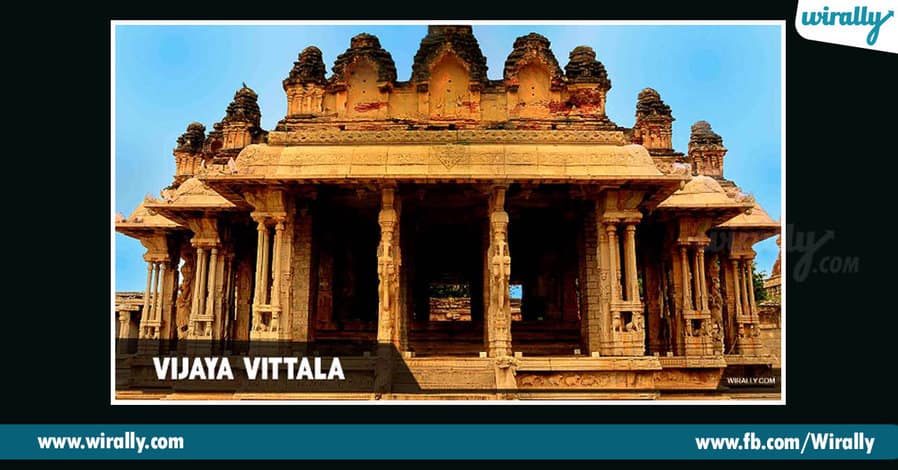
- Lotus Temple or Zenana Enclosure:
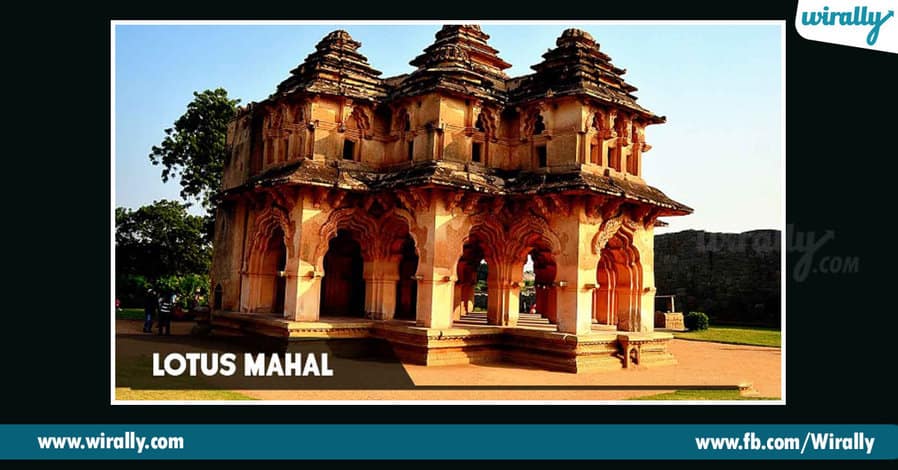
- Underground Temple:
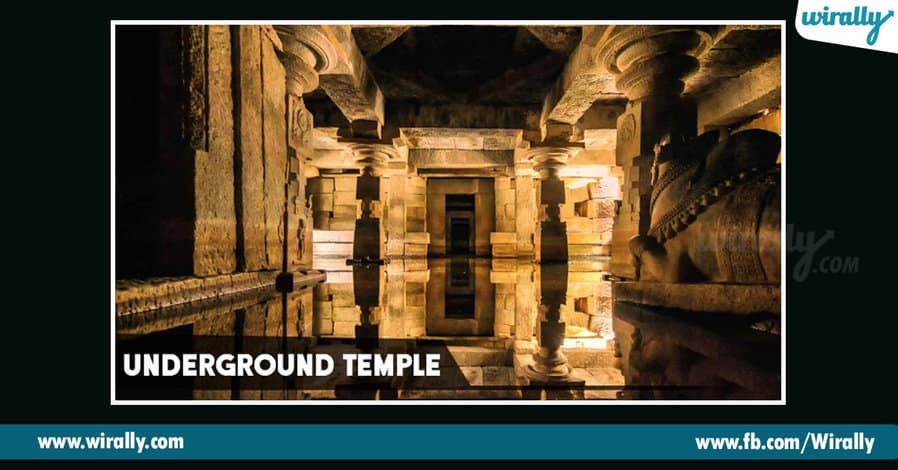
There is a series of steps at the axis of the main tower that leads you to the sanctum and inner part of the temple. There is a There is a cubical pillared main hall in front of the shrine that you can access dependent on the fact the water level. Outside of the temple there is a beautiful lawn.
You have to take out your socks and shoes and carry them in your hands while visiting this underground temple. It is worth the little trouble you take here and you must not miss visiting this temple at any cost!
- Archaeological Museum:
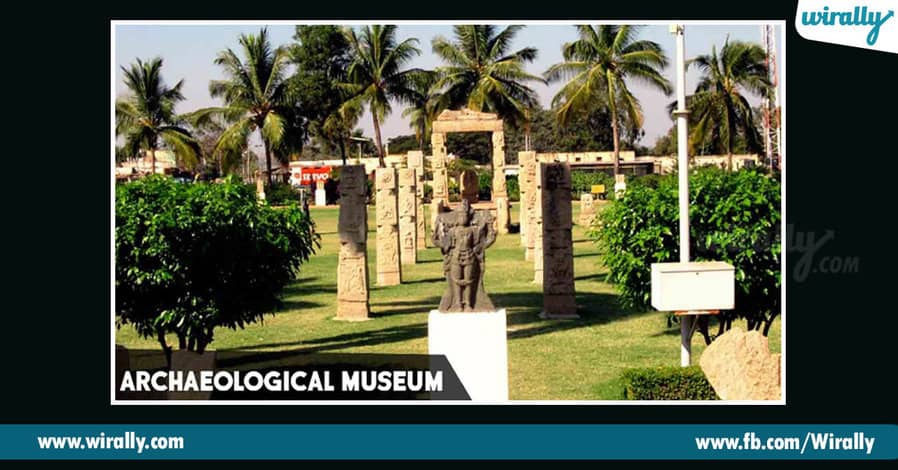
It will take more than a day or two to visit entire Hampi. So it is best you stay here atleast for more than three days. It take your time and visit these places mentioned above. Apart from these ten places you also must see the domed royal elephant stable, Queen’s bath, the Krishna temple, Hazara Rama Temple and the Badavilinga temple (located beside the Lakshi narasimha statue). Visit every nook and corner of the magnificent ruins and see how every stone speaks of a splendid past. You must have a tour guide with you by your side or the ruins will look meaningless to you. It is hot at Hampi so please carry enough water, caps and hats for your protection. Don’t let the weather take away all your joy and energy while you are roaming around the beautiful Hampi !














